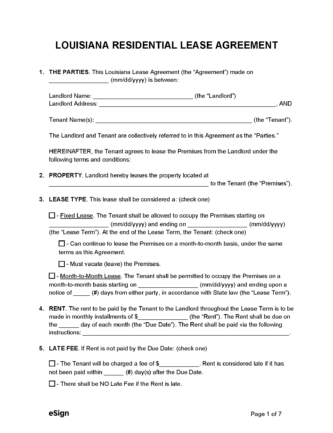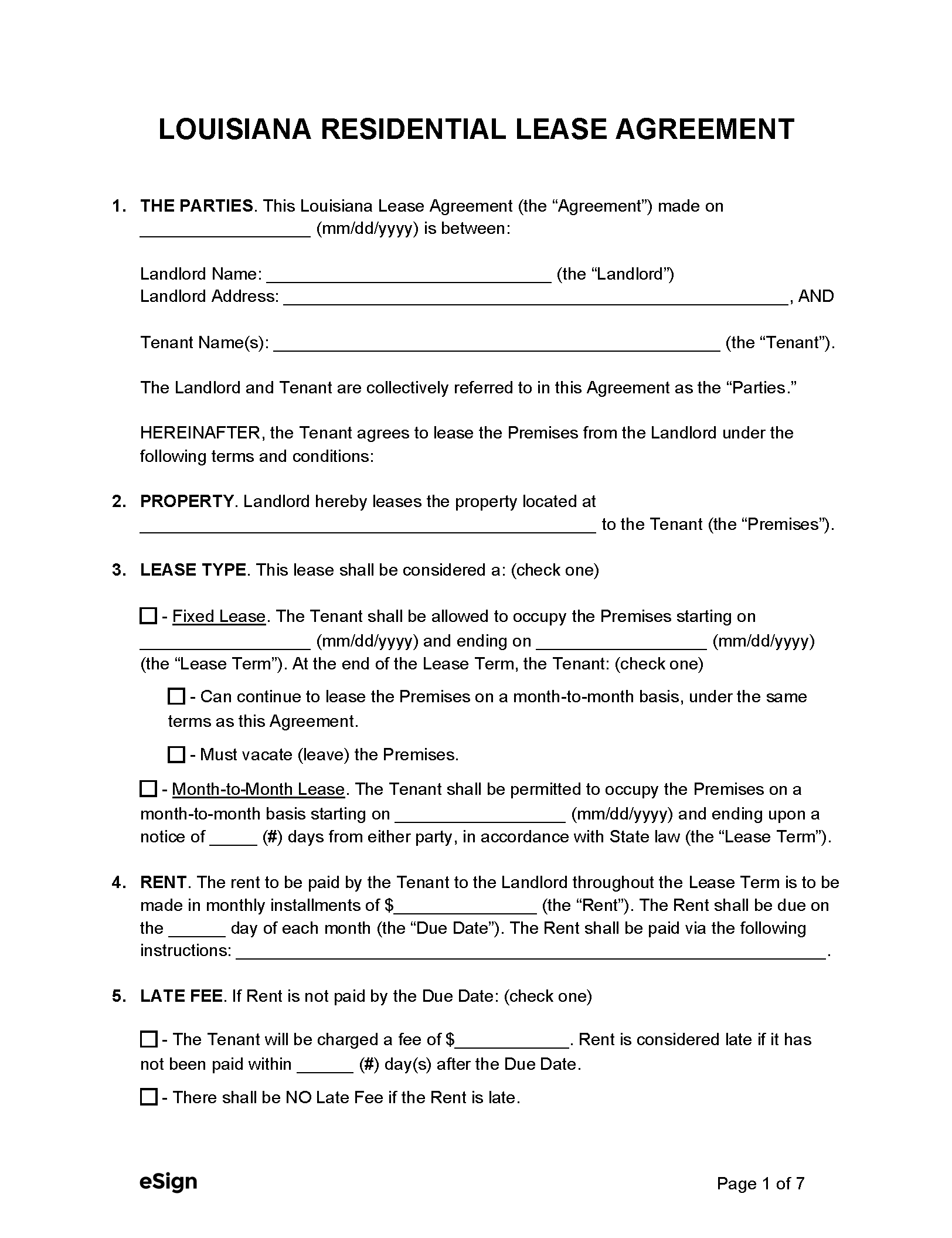Lease Agreements: By Type (6)
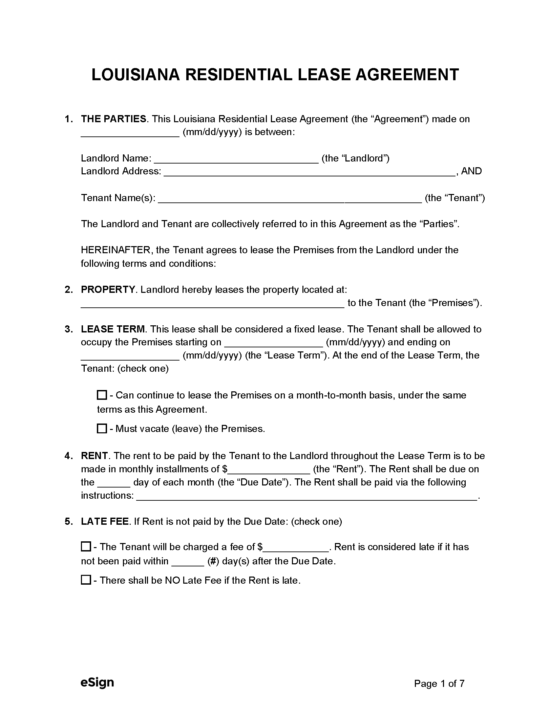 Standard (1-year) Lease Agreement – A rental agreement between a landlord and tenant that terminates after one year unless renewed by the tenant. Standard (1-year) Lease Agreement – A rental agreement between a landlord and tenant that terminates after one year unless renewed by the tenant.
Download: PDF, Word (.docx), OpenDocument |
Commercial Lease Agreement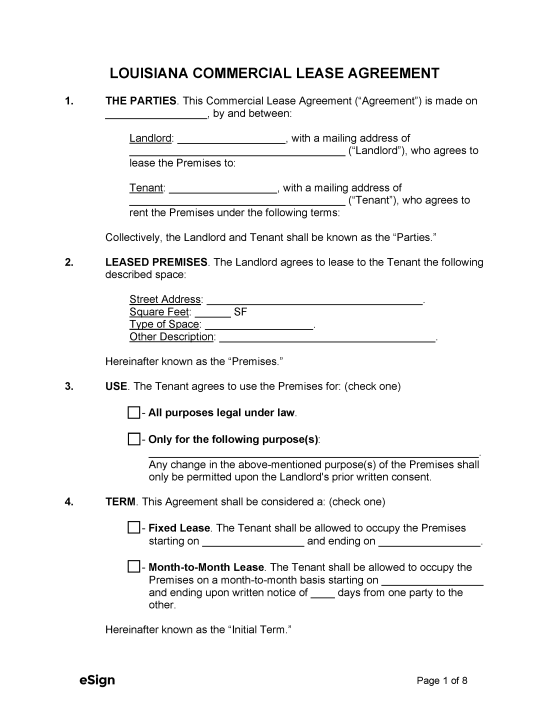 – Used to rent out a non-residential property such as office space or industrial warehouses. – Used to rent out a non-residential property such as office space or industrial warehouses.
Download: PDF, Word (.docx), OpenDocument |
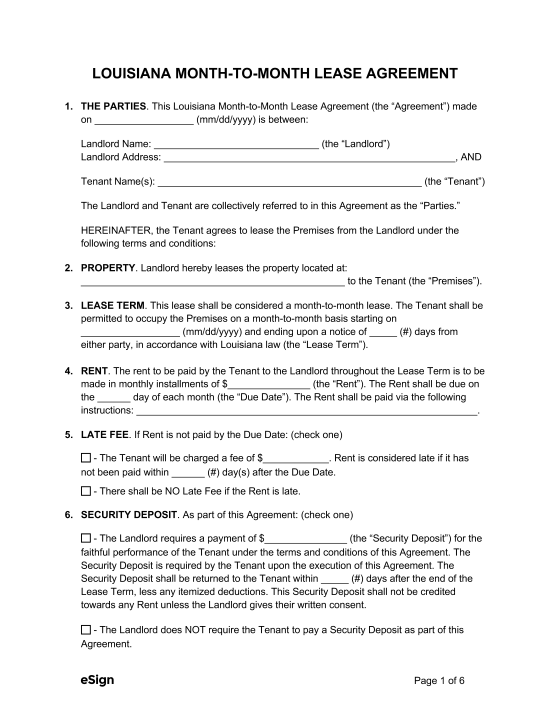 Month-to-Month Lease Agreement – A month-to-month lease is a rental agreement without a defined end date. Instead, the tenant will renew the lease each month by paying the rent. Month-to-Month Lease Agreement – A month-to-month lease is a rental agreement without a defined end date. Instead, the tenant will renew the lease each month by paying the rent.
Download: PDF, Word (.docx), OpenDocument
|
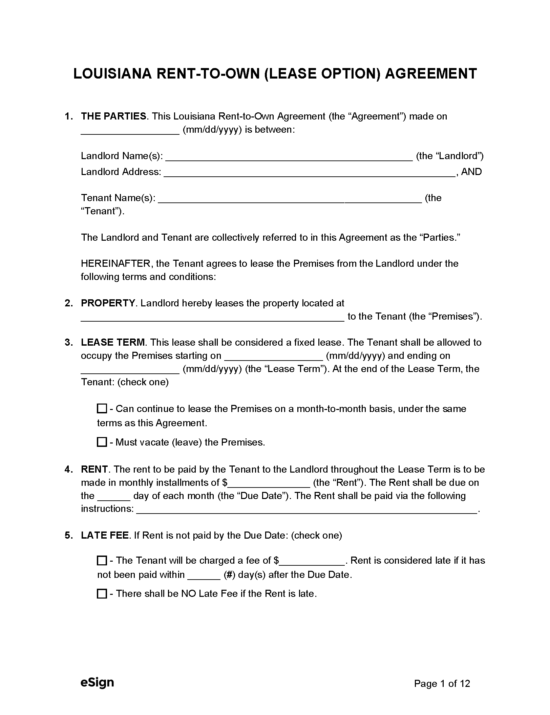 Rent-to-Own (Lease Option) Agreement – This type of lease allows the tenant to purchase the property, providing they’ve complied with the terms and conditions of the agreement. Rent-to-Own (Lease Option) Agreement – This type of lease allows the tenant to purchase the property, providing they’ve complied with the terms and conditions of the agreement.
Download: PDF, Word (.docx), OpenDocument |
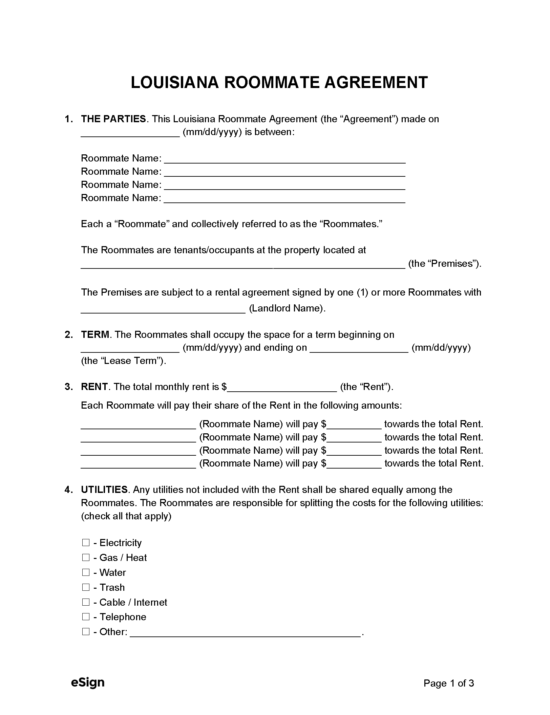 Roommate Agreement – An agreement strictly between tenants that breaks down the division of expenses and other terms and conditions of sharing communal space. Roommate Agreement – An agreement strictly between tenants that breaks down the division of expenses and other terms and conditions of sharing communal space.
Download: PDF, Word (.docx), OpenDocument |
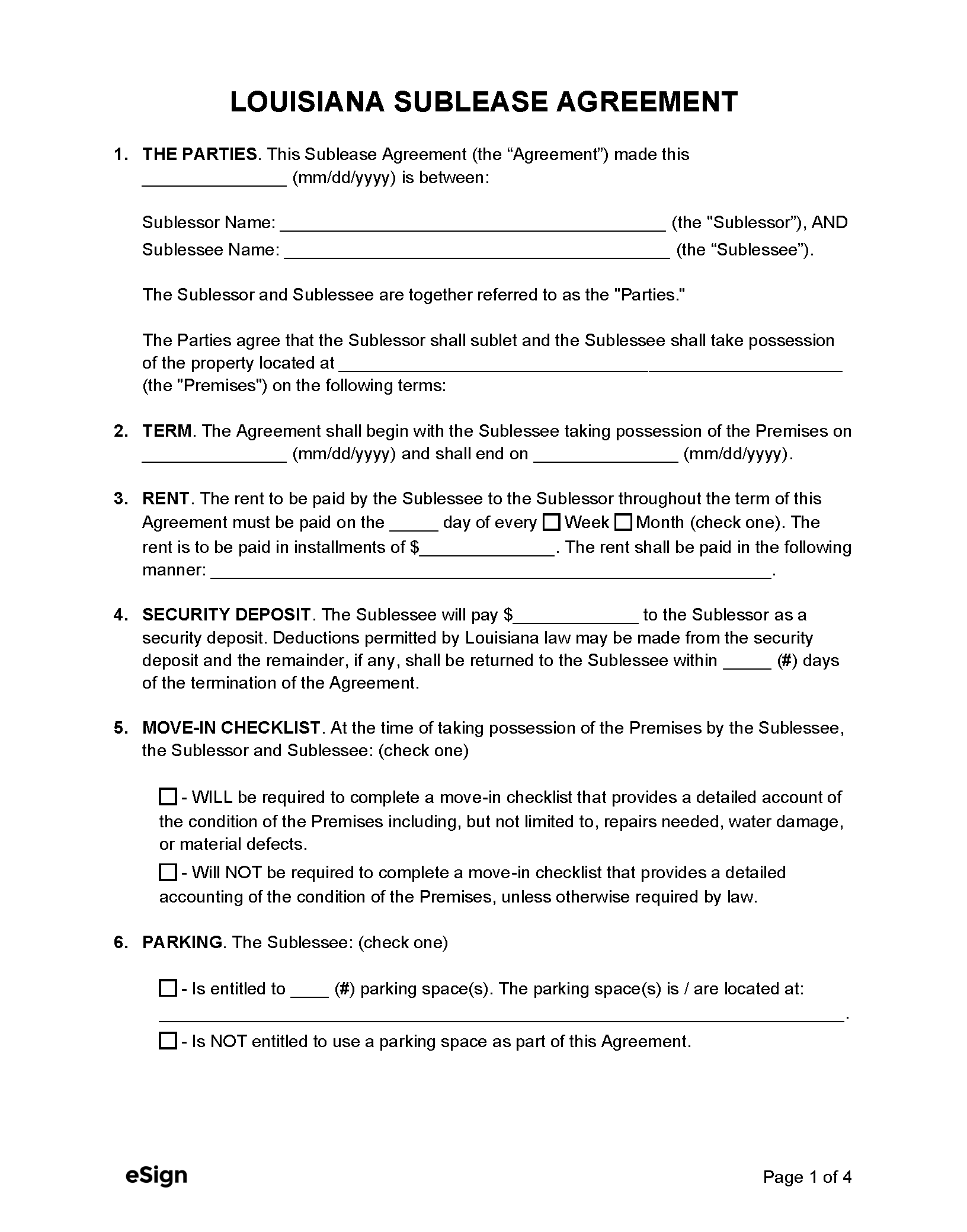 Sublease Agreement – An agreement between a tenant and a sub-tenant that allows the former to rent their space to the latter for the term and price determined in the contract. Sublease Agreement – An agreement between a tenant and a sub-tenant that allows the former to rent their space to the latter for the term and price determined in the contract.
Download: PDF, Word (.docx), OpenDocument |
Required Disclosures (1)
- Lead-Based Paint Disclosure (PDF) – If the rental property was constructed before 1978, the landlord must disclose the presence of lead paint in their unit.[1]
Security Deposits
Maximum Amount ($) – Landlords may charge any amount for a security deposit.
Collecting Interest – Interest doesn’t need to be collected on security deposits.
Returning to Tenant – A deposit must be returned to the tenant within one month of the termination of the lease.[2]
Itemized List Required? – Yes, the landlord must give the tenant an itemized statement explaining any deductions made to their deposit.
Separate Bank Account? – No, there is no state law that requires security deposits to be kept in a separate bank account.
Landlord’s Access
General Access – There are no statutes requiring the landlord to give notice before entering a rental property.
Immediate Access – Landlords can demand immediate access to a rental unit in emergency situations.
Rent Payments
Grace Period – Tenants are only given a grace period to pay rent if their lease provides one.
Maximum Late Fees ($) – There is no state limitation for late fees.
Bad Check (NSF) Fee – Landlords can charge tenants a $25 fee or 5% of the check amount for bounced checks.[3]
Withholding Rent – If the landlord doesn’t make necessary repairs within a reasonable time, the tenant can complete the repairs and demand reimbursement or deduct repair costs from their rent.[4]
Breaking a Lease
Non-Payment of Rent – Landlords can evict tenants with five days’ notice if they don’t pay rent on time.[5]
Non-Compliance – If a tenant doesn’t comply with their lease, the landlord can give them five days’ notice to quit the property.
Lockouts – Landlords cannot change the tenant’s locks without notice or a court order.
Lease Termination
Month-to-Month Tenancy – Month-to-month tenancies can be canceled with 10 days’ notice.[6]
Unclaimed Property – State law is unclear on what a landlord should do with any property abandoned by the tenant.
